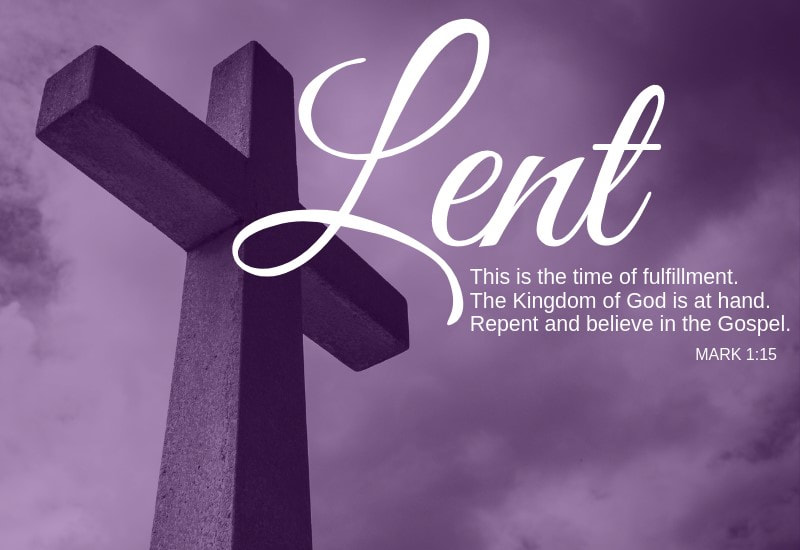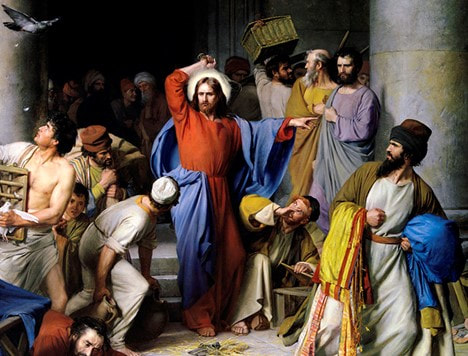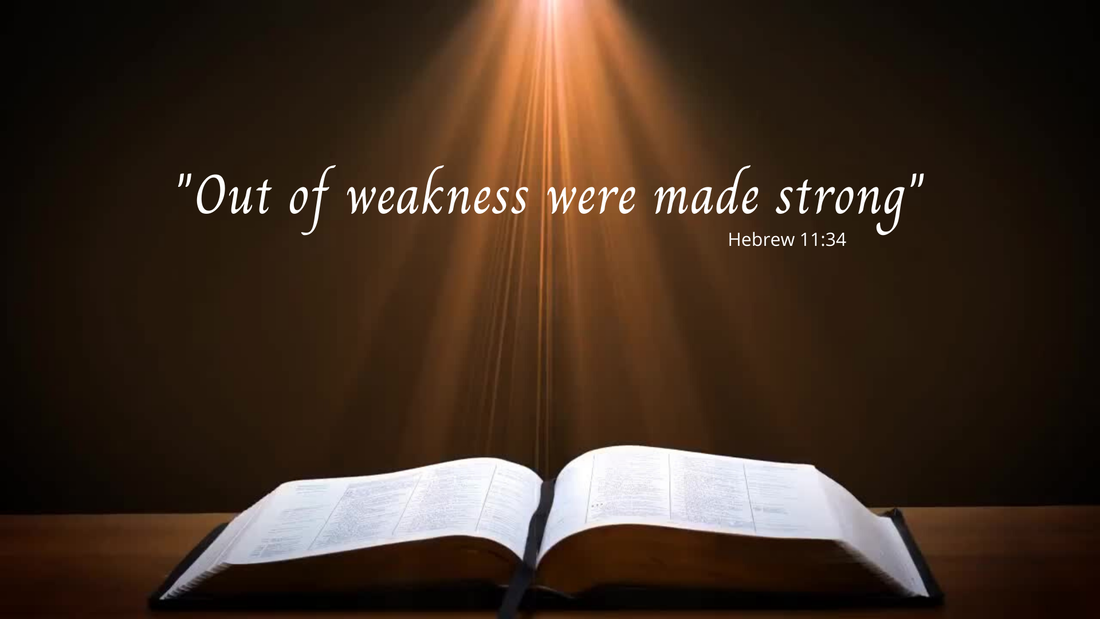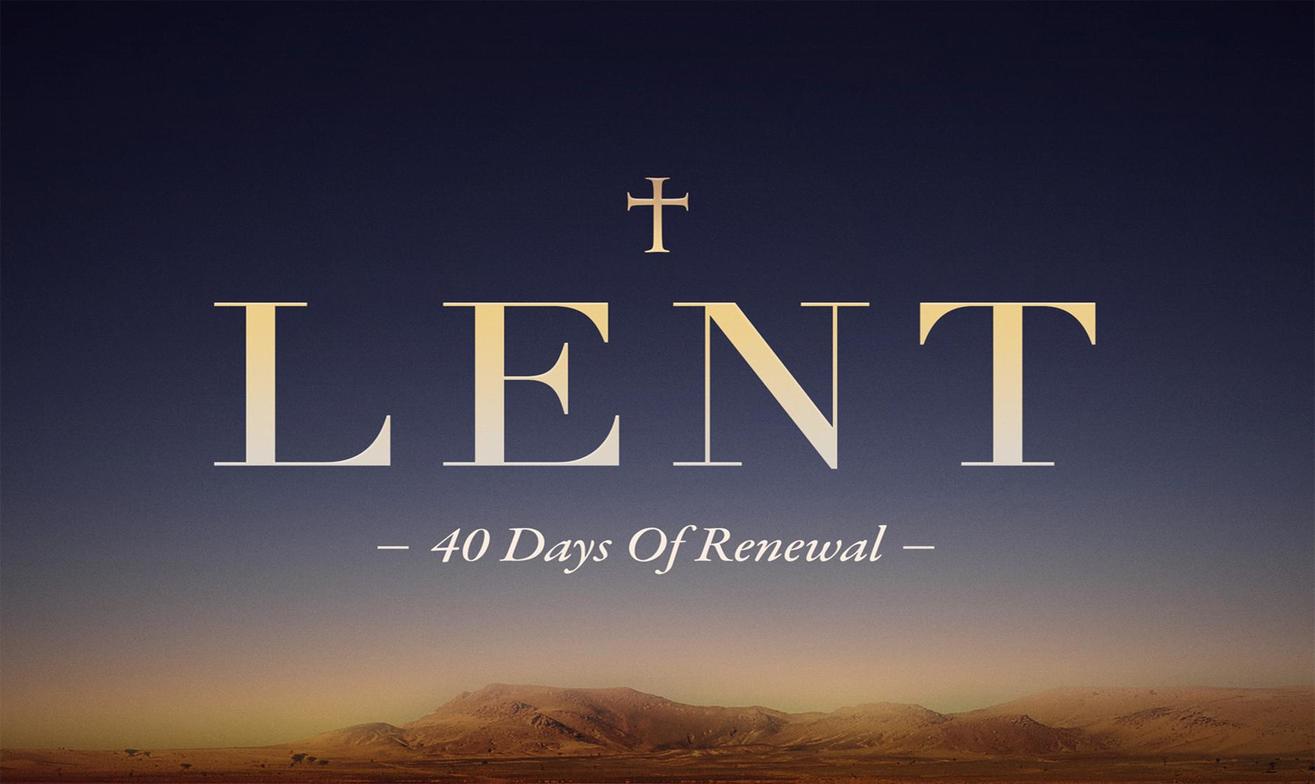|
Prayer. It is how we communicate with God. As we begin this season of Lent together as a parish family, there is so much to pray for. This week’s newsletter is filled with many prayers. Prayers for the people of Ukraine. For our leaders. The request for prayers for our catechumens and candidate from our parish preparing to be welcomed into the church this Easter. For those who are sick, and for those who have gone before us. I have also included an article from America Magazine “Praying for Peace in Ukraine – Even When it Feels Useless.” As you will read in the article, Jesus over and over again in scripture says “Peace be with you.” That is my prayer for you.
Today is the World Day of Prayer, a global ecumenical movement led by Christian women who welcome you to join in prayer and action for peace and justice. May we continue to unite all of our prayers together as we pray for peace. When we may find it difficult to pray, may our prayers lift one another up. May God bless and keep safe each of you and those that you love. Fr. Greg Rejoice! This Sunday at Mass we celebrate Laetare Sunday. The Latin word Laetare means ‘rejoice’ and its origin is rooted in the Introit (opening chant) for the Fourth Sunday of Lent – Laetare Jerusalem: “Rejoice, O Jerusalem and come together all you that love her: rejoice with joy, you that have been in sorrow: that you may exult, and be filled from the breasts of your consolation.”
Laetare Sunday marks the midpoint of Lent and the rose-coloured vestments that I will be wearing at Mass give us a glimpse at the light of the end of the 40-day tunnel of penance. Yes, Lent is a penitential season. It is a time that we allow the spot light to shine in on our hearts, looking at the nooks and crannies to see what needs to pushed out, that is sin, in order to fully allow Christ to enter our hearts at Easter, with the new Easter light, the true light of Christ. This is what this Sunday is all about. Lent is not all about being somber. This Sunday we are called to rejoice in the reality of Easter – the promise of Easter – the resurrection of our Lord and Saviour Jesus Christ. At this midpoint I ask myself the question, “How has my season of Lent been going?” I ask you the same question. If you can say it has been a good season and that you have experienced God’s graces and blessings, that you feel closer to Christ, that you have experienced spiritual renewal, then thanks be to God! If you say it has been a little rough, that your Lenten practices of prayer, fasting and almsgiving have fallen short of what you set out to embrace at the beginning of the journey, fear not. We are at the midpoint. Consider this a reboot, a new start. Rejoice in the fact that our God is a God of second chances and fresh starts. That is what the Sacrament of Reconciliation is all about. Make the most of these next three weeks by striving to realign your heart with the heart of Christ, returning to Christ through prayer, and take the time for your spiritual renewal. Remember that Christ fell three times carrying the cross. Now we too get back up, as people of hope. Remember that we are united in prayer. May God bless you and those that you love. Fr. Greg 3 Things to Know About Laetare Sunday Click here to watch a YouTube Video about Laetare Sunday This Sunday’s Gospel from Matthew 2:13-25 recounts the “cleansing of the Jerusalem temple” by Jesus, as it is usually called. When I am visiting our St. Peter Catholic Elementary school classrooms (now virtually), sometimes I will get the question “Did Jesus ever get angry?” This is usually when I pray that the bell will ring. And so, we begin to unpack the answer together. Jesus was just like us, for he was fully human, (and as our faith teaches us, and fully divine). Taking it one step further, he was like us in all things but sin. This brings us to our Gospel, one of the best examples of Jesus getting angry.
The temple-market in the court of the Gentiles, as well as the money exchange tables, were meant for the benefit of the many pilgrims who would come to Jerusalem for Passover. Jesus, wishing to see the temple as something other than a market-place, sought to drive out the sellers and exchangers. “Stop turning my Father’s house into a marketplace,” Jesus said. So, is it a sin to get angry? Jesus used his passions with zeal, with great energy or enthusiasm in pursuit of a cause or an objective. He saw what was taking place in God’s house, His Father’s house, and spoke up. This zeal could in fact have cost Jesus his life. So, was this a sin, to speak with zeal, and what we may say get angry? No. We once again return to the commandments of “Love of God” and “Love of Neighbour.” Jesus saw what was taking place in the temple and spoke up because of His love for God. This was the use of passions for something good. When we see offences taking place against our God and our neighbour, we too are called to use our passions, our emotions, given to us by God, to speak up. An example of this is abortion and medically assisted suicide. Every life, from conception to natural death, is a precious gift from God. Treating our Church, the House of God, with respect, is another example. Our belief in the Eucharist being the real presence of Christ is yet another. Any offence is most troubling, and would cause us anger. So how do we speak up? This is done with the help of the Holy Spirit, and with a message delivered in love. Taking the very best of our passions, our emotions, and setting out to change the hearts of those that believe likewise, can bring about change. And as you know, we do not pray just for change, but transformation, so that there is no going back to former ways. And all of this is done delivered in a message of love. As I am writing this, other examples come to mind, and perhaps as you are reading this some examples are popping into your head. Let us pray for transformation. May we call upon the gifts of the Holy Spirit that we received at Confirmation, for the courage to speak up, by our words, deeds, and action. All delivered in a message of love, using the very best of our passions and emotions. Please know of my continued prayers. I look forward to coming together this weekend for the celebration of Mass, for many in person, at our spiritual home of St. Julia. Welcome home, and may God bless you and those that you love. Fr. Greg This Sunday we once again hear the love letters of St. Paul as he writes to the Romans. As always, he opens with “brothers and sisters,” his beloved. Then he makes the bold statement “If God is for us, who can be against us?” As I always say, all Scripture is the living word of God, and Paul writes as if he is speaking to us in 2021. So, what does this mean for us today?
This is the beauty of Paul’s writings and this is what I believe we need to hear today. No matter what we face, whether that be financial difficulties, health challenges, family concerns, or even a pandemic, God takes each situation and somehow, beyond our understanding and comprehension, uses it for our benefit, in the here and now, and ultimately for our eternal benefit. This is indeed something to wrap our minds around. God is with us always, in all our times of need, on this our earthly journey. God pours out His love and mercy upon us. Many times, in the present moment, this is not clear to us. It is only when we look to the past, to see how God brought something good out of a past challenge, that we can say to ourselves that we are not alone, and we trust that God will see us through this moment in time as well. This requires faith and trust in God. We are God’s chosen ones. God is with us. It is no wonder Paul proclaims, "What then shall we say to these things? If God is for us, who is against us?" The answer quite simply is NO ONE! As we continue our Lenten journey together as a community of believers here at St. Julia, may we hold and keep one another in prayer. God is with us – and we, as His daughters and sons are loved. We must never forget that. May we unite any cross that we are carrying at this time with that of His son, Jesus Christ. Please know of my continued prayers and I look forward to welcoming everyone home, that is to your spiritual home, very soon. God bless, Fr. Greg In our Gospel this Sunday from Mark 1:12-15, the Spirit drove Jesus into the desert. This past year, we too have found ourselves in a desert, in what feels like at times forty times forty days. Yet in other respects, it is hard to believe that it has been almost a year. Mark writes, “He was among wild beasts, and the angels ministered to him.” Angels.
The ministry of angels can be found throughout the life of Christ. It was an angel who announced to Mary that she would give birth to the Baby Jesus. Angels were present at Jesus’ birth. They warned Joseph. An angel was with Jesus when he was praying at the Garden of Gethsemane. Angels were ready to help when Jesus was betrayed. An angel rolled back the stone from the tomb of Joseph of Arimathea. An angel announced the resurrection of Christ. Christ ascended into heaven with angels present. The list goes on of how angels played an important role in the ministry of Christ. Just as angels surround the throne of God the Father and serve Him, they also were around Jesus - attending to God the Son. The angels observed Jesus dying a humiliating death between two robbers. They observed the great love that Jesus showed toward humanity. As a parish family, the angels have been with us and our community here at St. Julia, watching over us. May we embrace this season of Lent with an open heart, and allow the Holy Spirit, and the angels too, to minister to us as we seek a renewal of mind, body, and spirit. Please know of my prayers for all of your intentions, and may God continue to bless each of you and those that you love. Fr. Greg What is Lent?
Lent is the 40-day season of preparation for Easter that ends on Holy Thursday, three days before Easter Sunday. During Lent, Catholics recall their baptism and do penance – fasting, prayer, and almsgiving as they commemorate the death and resurrection of Christ. What is Ash Wednesday? Ash Wednesday marks the beginning of the liturgical season of Lent. Palms from the previous Palm Sunday are burned – ashes from these palms are distributed on Ash Wednesday as a sign of penitence. Why do Catholics traditionally give something up during Lent? To do penance in preparation for the greatest feast in the Christian calendar. What is fasting and abstinence? The penitential days and times in the universal Church are every Friday of the whole year and the season of Lent. Abstinence from eating meat or some other food according to the prescripts of the conference of bishops is to be observed on every Friday of the year unless a Friday occurs on a day listed as a solemnity. The law of abstinence forbids the use of meat, but not of eggs, the products of milk or condiments made of animal fat. Abstinence and fasting, however, are to be observed on Ash Wednesday and Good Friday. Fasting in the Latin Church is the limitation of food and drink – typically to one main meal and two smaller meals, with no solid foods in between. The law of abstinence binds those who are fourteen years of age and older. The law of fasting, however, binds all those who are eighteen to fifty-nine years of age (so until the beginning of their sixtieth year). Nevertheless, pastors of souls and parents are to take care that minors not bound by the law of fast and abstinence are also educated in a genuine sense of penance. The Canadian Conference of Catholic Bishops decrees that the days of fast and abstinence in Canada are Ash Wednesday and Good Friday. Fridays are days of abstinence but Catholics may substitute special acts of charity or piety on this day. That the passion of Christ points us to the one thing that we can change? That one thing is our selves. We now enter into Holy Week, which in my mind is the most sacred time of the year. As the season of penance and sacrifice comes to an end, we turn to the focus of Holy week – the passion and suffering of Christ, the resurrection of Christ, and all of the happenings that lead us to these events – events that define who we are and what it means to be a Christian. There is something especially beautiful about the Easter Vigil for me, for it was here that I moved one step closer to answering God’s call to enter the seminary. I credit the Holy Spirit, for I discovered that by engaging myself wholeheartedly in this beautiful celebration, and truly listened to the words being proclaimed, that is has the power to change a person forever. During the Triduum we suffer along with Christ. We also journey with Him in prayer so that we too might rise with Him at His glorious Resurrection. It was here that I learned that the only thing I have power over to change is myself. We can pray for each other, yet only I can make the decision to change. That personal invitation from Jesus is open to each and every one of us. I invite each of us to immerse ourselves into this mystery this week. While very different from any Holy Week we have ever experienced before, consider joining us for all of our live streamed liturgies this week, and let us join our hearts and minds with Jesus, and remember what He did for each of us. May God continue to bless and keep safe each of you and those that you love.
Fr. Greg That God calls us to transform our weaknesses into strengths? Looking back at our life journey for just a moment, growing up in our families, attending school, or in figuring out what we want to do in life, at every turn we look at our strengths and weakness. What am I good at? What gifts have I been given? When I was working in retail, S.W.O.T. analyses were often completed, to identify not only strengths and weakness of the business, but also opportunities and threats. Most importantly, the analysis asks the probing question: how do we turn those weaknesses and threats into strengths and opportunities? Our Catholic faith also calls upon us to look at and identify our strengths and weaknesses, and the importance for us, to transform our weaknesses into strengths. However, we are called not to look back and dwell on the past, but rather to look forward, all in order to become the people God intended us to be. Mathew Kelly writes: “Our weaknesses are the key to the
future that God has envisioned for us.” God has a plan for each and every one of us – and the plan continues to unfold each day as we continue to listen in our hearts to where God is calling us. During this season of Lent, may each of us take the time to bring our weaknesses to God, and allow Him to transform us, through the power of the Holy Spirit, to be the people He personally calls us to be. May God bless each of you and those that you love, Fr. Greg. That most of the spiritual plans we bring to Lent end up working for a short period of time? It would be my guess, that for the few days prior to Lent we were busy reconstructing our usual programs for Lent, the things that worked the last five to ten years, so that all would be in place for Ash Wednesday. It is like pulling out of storage a box of old decorations that have brought us some useful comfort and familiarity. The lists of things we give up – and the list of things we do – the books of prayer, the pasta and fish dinners, even the resolutions that provide us an opportunity to be renewed. However: Eye has not seen, ear has not heard, nor has it so much as dawned on us what God has prepared for those who love Him. (I Corinthians 2:9) These are good things! How about us leaving them in our spiritual trunk? How about we go to the Lord with heart, mind and soul open to what He will bring? What He will want of us! I am speaking only for myself – most of the spiritual plans I bring to Lent end up working for a short period of time or only take me as far as I want them to go (maybe Forty Days). If the Lord is calling the game, inviting us to join in, to surrender to the unknown – new heights, to new ministries in His name and most importantly new intimate moments of prayer and to come
away to those holy places where we have need of nothing, for the Lord suffices – then Lent will not be a program of accomplishments but an immersion into His transforming Love in ways we can’t even imagine. That we need a constant reminder that things get out of sync in our lives? That is exactly what the season of Lent is all about. I find for myself, more times than not, I get out of balance when it comes to work, rest, and prayer. At the end of a long day, we let our prayer life falter. We allow things to control us rather than us controlling them. And then there is Lent. It stops us, and gives us the opportunity to say “I want to get it right.” I want to be renewed; I want to be refreshed. May this season of Lent be a time that all of us try to improve ourselves, to turn away from the presence of sin in our lives, that has crept into our lives. At the end of this 40 day journey, may we celebrate Easter, an Easter renewed in spirit, with a refreshed prayer life, and being reconciled with God. That is my prayer for each and every one of us this Lent.
|
AuthorFrom Our Pastor Archives
July 2024
|
|
251 Glenridge Ave.
St. Catharines, ON L2T 3Y7 |
©2021 St. Julia Parish
|









